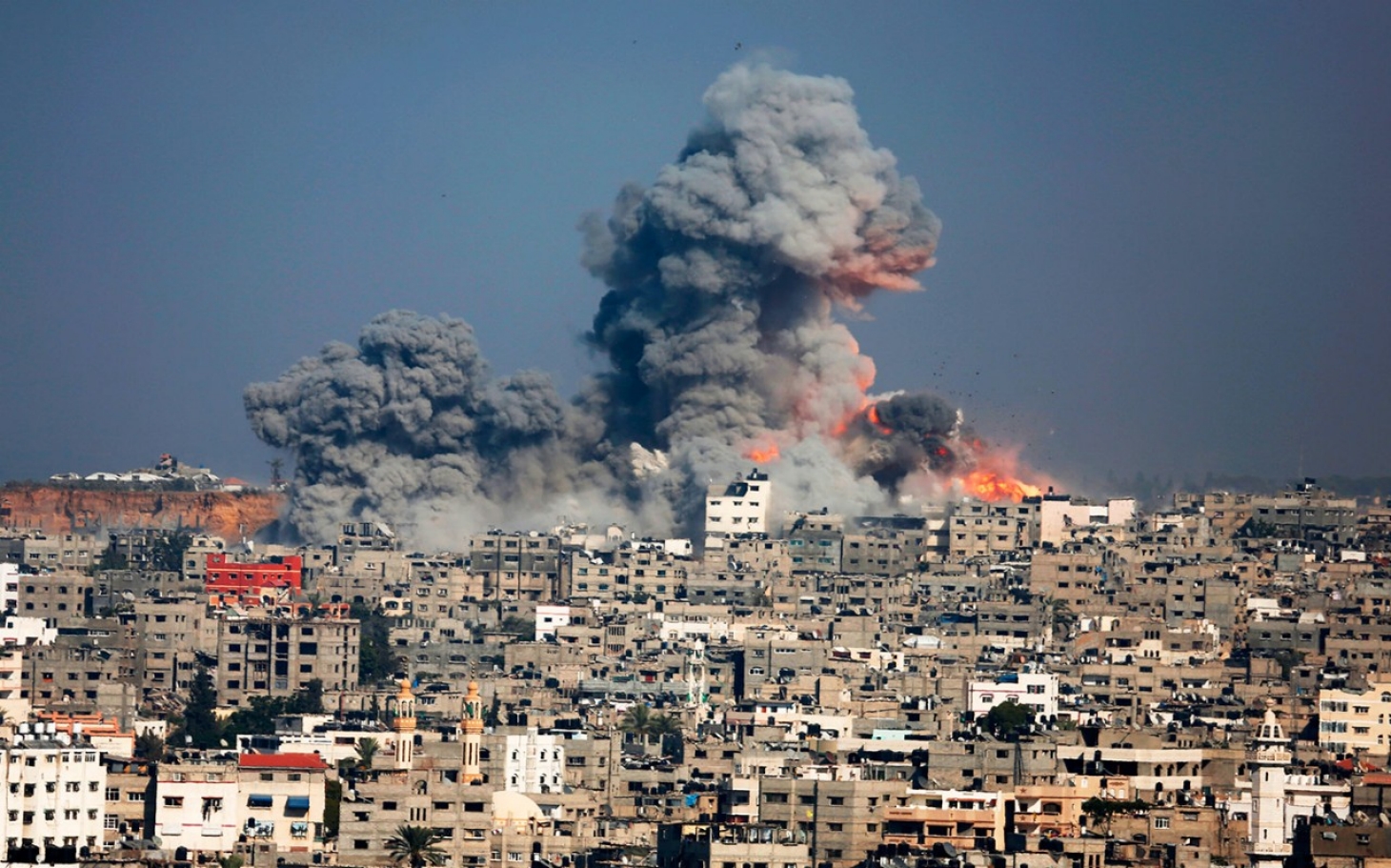gaza-city-july-29-2014-300x187.jpg" alt="Smoke and fire from the explosion of an Israeli air strike rise over Gaza City. At least 100 Palestinians killed in Israeli bombardment.(Photo: whitewraithe.wordpress.com)" width="300" height="187" /> Smoke and fire from the explosion of an Israeli air strike rise over Gaza City. At least 100 Palestinians killed in Israeli bombardment.(Photo: whitewraithe.wordpress.com)
Cairo, 5 Dzulqo’dah 1435/31 August 2014 (MINA) – An international organization involved in assessing post-conflict reconstruction says it will take 20 years under current levels of restrictions to rebuild the Gaza Strip’s battered and neglected housing stock following the Israeli aggression on Gaza.
Most of the new building would be to make up for the current housing deficit, rather than to address damage from the Israel assault, Egypt’s Ahram quoted by Mi’raj Islamic News Agency (MINA) as reporting.
The housing assessment by Shelter Cluster, chaired by the Norwegian Refugee Council with the participation of the U.N. refugee agency and the Red Cross, underscores the complexities involved in an overall reconstruction program for the Gaza Strip, which some Palestinian officials have estimated could cost in excess of $6 billion.
It is based on the current level of goods permitted to be moved from Israel to Gaza — a level that could easily be expanded, which would shorten the time needed to address the territory’s housing needs.
Also Read: Israel Can Resume Gaza Aggression if Hamas Doesn’t Disarm: US
Any effort to rebuild Gaza will be hindered by a blockade imposed by Israel since the resistance group Hamas won election in 2007. Israel has severely restricted the import of concrete and other building materials into Gaza, fearing that fighters will use them to build rockets and reinforce cross-border attack tunnels.
Egypt and Norway have raised the possibility of convening a Gaza donors’ conference at some point next month, but no firm arrangements have been made.
With a population of 1.8 million, Gaza is a densely populated coastal strip of urban warrens and agricultural land that still bears the scars of previous rounds of fighting.
In its report issued late Friday, Shelter Cluster said 17,000 Gaza housing units were destroyed or severely damaged during this summer’s war and 5,000 units still need work after damage sustained in the previous military campaigns. In addition, it says, Gaza has a housing deficit of 75,000 units.
Also Read: UN Warns Gaza Humanitarian Situation ‘Extremely Dire’ as Winter Approaches
Shelter Cluster said its 20-year assessment is based on the capacity of the main Israel-Gaza cargo crossing to handle 100 trucks of construction materials daily.
There was no immediate comment from the Israeli government agency responsible for operating the crossing on whether it had future plans to ease restrictions on goods going into Gaza.
Israel and Hamas agreed on Tuesday to an open-ended truce. The cease-fire brought an immediate end to the war but left key issues unresolved. Hamas immediately declared victory, and celebrated the moment across country.
While Israel agreed to loosen its long-standing blockade to allow humanitarian aid and reconstruction materials into Gaza, many of the border restrictions will remain in place. Hamas, meanwhile, rejected Israel’s demands that it disarm.
Also Read: Israeli Airstrikes Kill 25 Gazans, Injure 77 in Ceasefire Violation
These deeper matters are only to be addressed in indirect talks in Egypt next month.
Mindful of Israel’s concerns about Hamas, Britain, France and Germany have proposed the creation of an international mechanism to monitor goods going into Gaza. The goal of the mechanism would be insure that Hamas and other fighter groups would not divert construction materials like iron and cement into weapons or weapons manufacturing facilities.
Netanyahu’s comment on Abbas came amid continuing displeasure among leading Israeli Cabinet ministers on the conduct of the recently concluded war, with many saying he did not go far enough to neutralize Hamas’s fighting ability.
Netanyahu rejected that criticism, but in an apparent nod to the pressure from his detractors said that Abbas will have to prove himself if he wants to be a partner in a diplomatic process.
Also Read: Israeli Occupation Forces Detain Over 200 Palestinians in Beit Ummar Raids
“He has to choose,” Netanyahu told Channel Two. “It’s either yes to Hamas or no to Hamas.”
Over 2,100 Palestinians died in the Israel offensive. Israel lost 71 people, which most of them are soldiers.(T/R04/R03)
Mi’raj Islamic News Agency (MINA)
Also Read: Israel Announces Land Seizure of 4,600 Dunums Near Nablus in West Bank










![Israeli tanks and APC’s gather by the Israeli – Lebanese border. Amid Israel’s escalating campaign against Hezbollah in Lebanon on September 30, 2024. [Erik Marmor/Getty Images]](https://en.minanews.net/wp-content/uploads/2024/10/IMG_20241001_203226-300x197.jpg)
















 Mina Indonesia
Mina Indonesia Mina Arabic
Mina Arabic